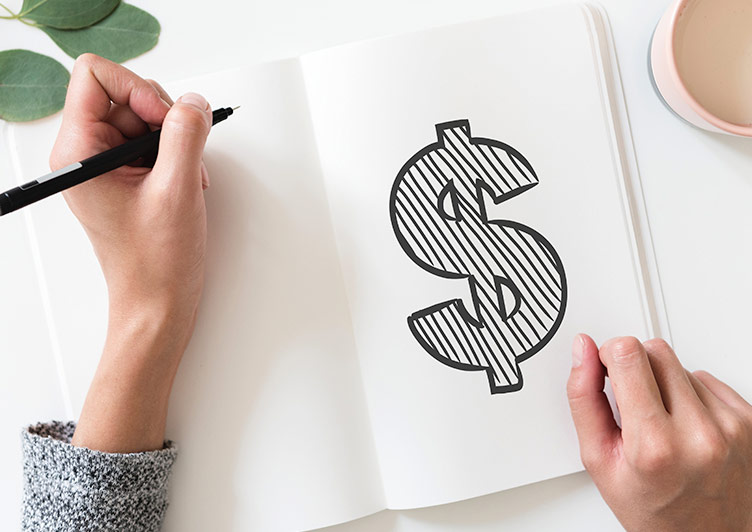Security Information
Security against scammers is our priority.
Scammers, skimmers, phishers and hackers. The one thing they have in common? They're all out to steal your personal data, account information, and ultimately your money. At Frontwave Credit Union, we take the privacy of our members very seriously. But we also urge you to take smart steps to defend yourself against these predators.
IMPORTANT SECURITY REMINDERS:
Frontwave will never email, call, or text you and ask for personal information such as Online Banking credentials, your card number, CVV or Social Security Number.Frontwave will never call you to ask for a code. A common scam involves criminals posing as members of the Frontwave Fraud Team. These fraudsters inform members that they are trying to verify a suspicious card transaction, and advise the member that they will send a text message with a code that the member is to read back to the caller. This is a scam! The caller is trying to gain access to your Online Banking information by resetting your password. DO NOT give the caller this code. Instead, hang up and report the incident to Frontwave using the phone numbers listed on this website.
How to Avoid Scams:
- It's easy to be overwhelmed by of all of the scams, spam and other junk you see on the Internet and in your email box. To learn how to determine what's legit and what's not, check out the Federal Trade Commission’s Scam Alerts and our infographic: "5 Ways Scammers Try to Steal Your Information."
- The Federal Trade Commission is a government agency that works to prevent fraudulent, deceptive and unfair business practices in the marketplace and to provide information to help consumers spot, stop and avoid them.
- If you ever have a question about whether a call, text or email is legitimate, contact the organization directly using the phone number listed on their official website. That goes for calls, texts or emails from Frontwave, too. You can contact us using the phone numbers listed on this website.
- Scammers can “spoof” phone numbers to make it look like they are calling from a legitimate organization, including Frontwave. When verifying a call or text, dial the number listed on the organization’s website directly using your keypad. Avoid simply replying to the number of the person who contacted you using the “recent calls” feature on your phone.
- No matter how careful you are with your financial records, criminals still find ways to access your card information to make unauthorized purchases.
- To combat this threat, Frontwave uses a leading fraud protection service to monitor your accounts and detect suspicious activity.
- If your card is lost or stolen, or you notice suspicious activity, call: 1.866.309.4934 (Domestic Toll-Free) or 303.967.1096 (Outside U.S.).
Call Visa Card Support, available 24/7:
- Local or International: 303.967.1096
- Domestic Toll Free: 866.309.4934
- Skimmers are small, illegal electronic devices that fit on top of real card readers on ATMs and at merchants' self-service sale terminals.
- The skimmers are designed to blend in with the rest of the machine, so they can be tough to spot.
- As you slide your credit or debit card into a compromised machine, the skimmer reads the magnetic strip on your card and stores the card number. Your PIN can be captured, too.
- Later, a thief retrieves information about your account and either sells it or uses it himself.
- You’re most likely to see these devices at gas pumps, ATMs or kiosks that sell tickets to public transportation.
- When checking an ATM for skimming devices, grab the card reader twist and then pull. It should loosen up and come right off.
- If you do find a card-skimming reader, remove it and call 911.
- To avoid skimmers, pay inside a station or use an ATM inside a bank lobby
- If you must use your card outdoors, look for ATMs and other terminals in well-lighted, well-trafficked areas that a thief would likely avoid.
- Update virus protection software periodically, and after every new virus alert is announced.
- Do not download files or open hyperlinks sent from people you don’t know.
- Use a firewall program to prevent your computer from being accessible to hackers.
- Use a secure browser to guard the security of your online transactions.
- Enter personal and financial information only when there is a “lock” icon on the browser’s status bar and look for the URL to read “https” versus “http”.
- If you must store personal and financial information on your laptop, use a strong password, one that is a hard-to-guess combination of upper and lower case letters and numbers.
- Also, don’t use an automatic log-in feature and always log off when you’re finished.
- Before disposing of a computer, delete personal information using a “wipe” utility program to overwrite the entire hard drive.
- Identity theft occurs when someone uses personal information without your permission to commit fraud or other crimes.
- Identity thieves often target people's names, Social Security Numbers and credit card numbers.
- The Federal Trade Commission estimates that as many as 9 million Americans have their identities stolen each year.
- While nothing can guarantee that you won't become a victim of identity theft, you can minimize your risk and minimize the damage if a problem develops.
- Our partners at GreenPath Financial Wellness offer excellent advice on how to protect yourself against identity theft.
- Still want more information? Check out our infographic: "5 Ways Scammers Try to Steal Your Financial Information"
Quick and informative service - I am treated great and I appreciate all they do to answer my questions and help.
— Margaret Z., Barstow, CA







